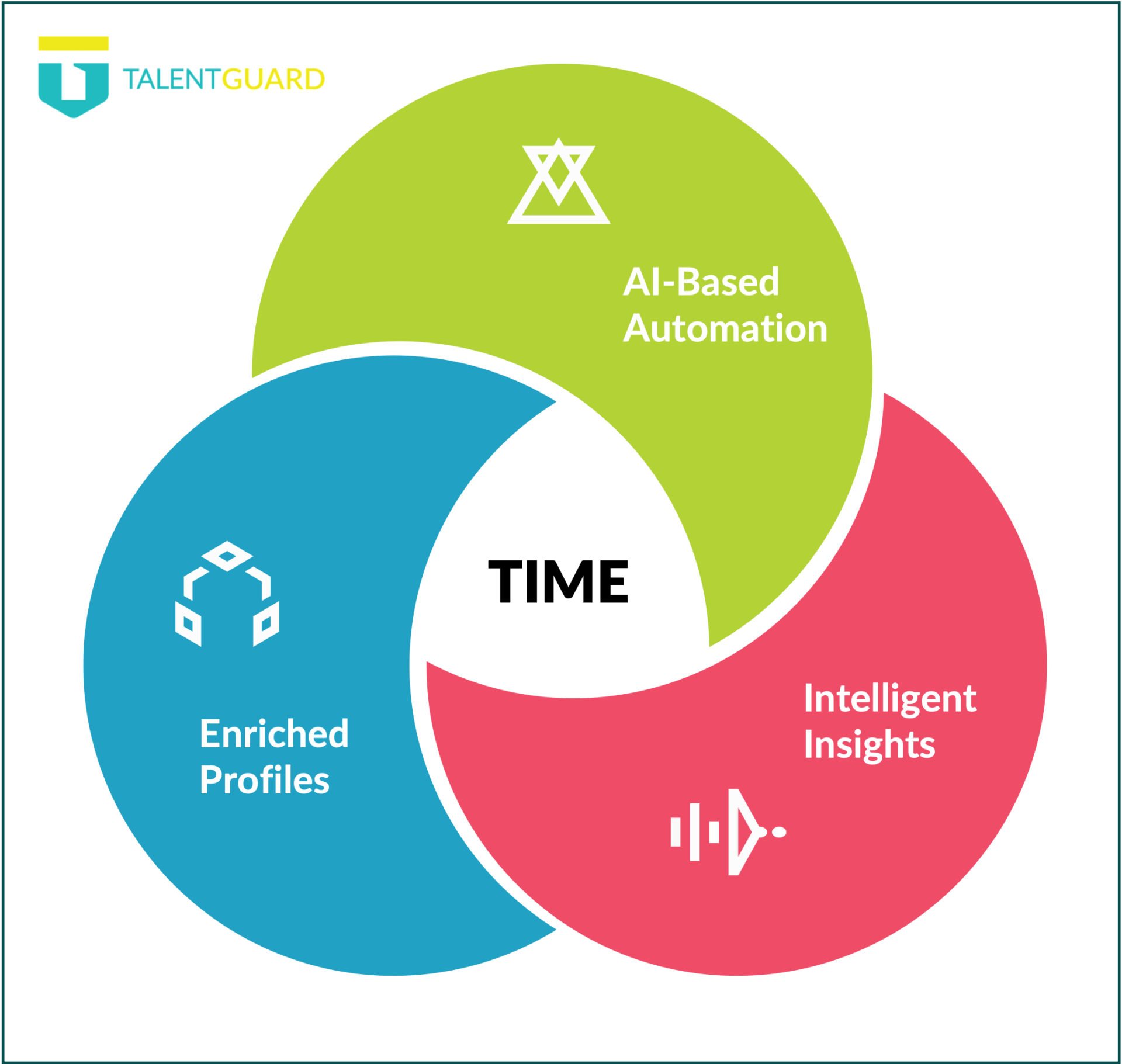Cost of Ignoring Skills Data: The Hidden Risks to Business

The cost of ignoring skills data can have far-reaching consequences for your business, impacting everything from employee retention to operational efficiency. In today’s competitive landscape, understanding and leveraging workforce skills is essential for driving innovation and staying agile. Without a clear picture of employee capabilities, businesses risk falling behind competitors who are harnessing skills intelligence to fuel growth. In this post, we’ll explore the hidden dangers of neglecting skills data and how embracing it can unlock your organization’s potential.
The future of a business is increasingly determined by the skills within its workforce rather than traditional factors like job titles or tenure. This paradigm shift offers immense potential but also poses significant risks for companies slow to adopt a skills-based approach to talent management. Ignoring the move toward skills-focused workforce management can lead to competitive disadvantages, talent mismatches, and reduced innovation, among other serious challenges. Here’s why implementing a skills-based approach is essential and the risks that emerge when businesses fail to do so.
Falling Behind Competitors
Businesses that cling to outdated, role-based talent management models risk falling behind their more agile competitors. Companies that emphasize skills over rigid roles can adapt more swiftly to market changes, adopt new technologies seamlessly, and leverage emerging opportunities for growth. By remaining fixed in a traditional framework, companies may find it difficult to pivot when faced with shifting customer expectations, economic fluctuations, or unexpected disruptions. This lack of agility can erode a company’s market share and diminish its relevance, putting it at a substantial disadvantage against competitors who are more responsive to change.
A skills-based approach enables businesses to maintain a dynamic workforce capable of evolving alongside industry trends. By not adopting this approach, companies may struggle to keep up with fast-moving competitors that prioritize skill development and flexibility, resulting in lost market opportunities and reduced innovation. To remain competitive, companies must recognize that staying agile requires ongoing skills assessment and development.
Talent Mismatch and Increased Employee Turnover
One cost of ignoring skills data is a widening gap between employees’ current skills and the competencies the business needs to meet its goals. Without a clear understanding of the organization’s skills inventory, it becomes difficult for HR teams and leaders to align talent effectively with strategic objectives. This misalignment can lead to frustration among employees whose skills are underutilized or undervalued, often causing them to seek employment elsewhere. In such cases, companies may experience high turnover rates, losing talented individuals to organizations that better recognize and utilize their abilities.
Another cost of ignoring skills data is that is that high employee turnover not only disrupts productivity but also incurs significant costs, both in terms of recruiting replacements and the loss of valuable institutional knowledge. An emphasis on skills development can mitigate these issues by keeping employees engaged and aligned with the organization’s objectives. When companies focus on fostering skills that meet both current and future demands, they improve employee satisfaction and retention, creating a more stable and committed workforce.
Stagnation in Workforce Development
In a world where skills are quickly evolving and becoming obsolete, a skills-based approach to talent management fosters continuous learning and professional growth. Companies that don’t prioritize skills development risk cultivating a stagnant workforce, with employees’ abilities failing to keep pace with industry advancements. This lack of progression not only hampers the company’s potential for innovation but also makes it less attractive to high-performing talent, who increasingly seek employers that support ongoing development.
When workforce skills become outdated, businesses find themselves less able to innovate or respond to changes in the market. New and emerging skills are often required to address industry shifts, technological advancements, and customer expectations, and a static approach to talent management can result in a lack of these competencies. Embracing a skills-based strategy enables organizations to stay competitive by ensuring their workforce is equipped with the relevant abilities to drive innovation and growth. Without this emphasis, companies may be perceived as out-of-touch, unable to adapt, and unattractive to ambitious professionals.
Inefficient Use of Resources
Ignoring a skills-based framework can lead to significant inefficiencies in resource allocation. When HR leaders lack a clear view of where skills gaps exist, they may invest in training programs that do not align with actual workforce needs or fail to capitalize on employees’ existing talents. This lack of strategic alignment results in wasted resources, as time and money are spent on initiatives that may have little impact on organizational goals or productivity.
Moreover, underutilizing talent by failing to deploy employees in roles that match their skills can result in missed opportunities for optimization. A skills-focused approach helps companies allocate their resources more effectively, ensuring that training and development efforts align closely with strategic objectives. Without it, organizations run the risk of misdirecting their investments and underutilizing their workforce, missing out on the productivity gains that a well-aligned, skills-driven strategy can deliver.
Declining Employee Engagement and Morale
Employees today want to feel that their skills are recognized and that they have clear, achievable paths for career progression. When organizations don’t adopt a skills-based approach, they risk disengaging their workforce, as employees may feel unappreciated, stagnant, or trapped in roles that don’t leverage their full potential. This lack of alignment can result in decreased job satisfaction and morale, which in turn affects productivity, innovation, and overall workplace culture.
Engagement is a critical factor for organizational success; engaged employees are typically more productive, committed, and proactive in seeking improvements. A skills-focused approach demonstrates that the company values each employee’s individual abilities and is invested in helping them grow. By neglecting this, companies miss out on the benefits of a motivated workforce, leading to higher rates of absenteeism, reduced performance, and a weaker organizational culture.
Heightened Vulnerability to Industry Disruption
The business world is experiencing rapid technological advancements, economic shifts, and industry disruptions. Companies that do not adopt a skills-based approach may find themselves ill-equipped to respond effectively to these changes, as their workforce lacks the adaptability required to pivot when faced with disruption. An organization that continually upskills and reskills its workforce is better positioned to withstand and capitalize on changes in its industry, whereas one that does not may struggle to adapt.
Skills-based talent management equips companies with the flexibility to shift resources, refocus efforts, and address emerging challenges. This level of adaptability is crucial in today’s economy, where industries can be transformed by new technologies and market conditions within a matter of months. Organizations that ignore the importance of skills will likely find themselves vulnerable to disruption, as they lack the resilience to pivot quickly and retain their competitive edge in uncertain times.
Compliance and Regulatory Concerns
Certain industries, such as healthcare and finance, are increasingly emphasizing specific competencies and skills to ensure compliance with regulatory standards. Organizations that overlook a skills-based approach may inadvertently fail to meet these evolving requirements, exposing themselves to compliance risks and potential legal consequences. Regulatory bodies in some sectors are beginning to require evidence of skills proficiency, making it imperative for companies to track and verify employee competencies.
In highly regulated industries, failing to align with these standards can result in penalties, fines, and damage to the organization’s reputation. Adopting a skills-based approach allows companies to track and document competencies more accurately, helping them remain compliant and avoid regulatory issues. By not implementing this approach, businesses may find themselves facing avoidable risks that could compromise their reputation and operational integrity.
Embracing a Skills-Based Approach
Given these significant risks, HR executives and organizational leaders have a clear mandate to prioritize a skills-based approach in talent management. This shift involves regular skills assessments, investment in targeted learning and development, and the adoption of systems that can track and manage skills across the organization. By fostering a culture that emphasizes skills development, companies not only address immediate workforce needs but also future-proof their talent pool, ensuring that employees are always prepared to meet new challenges and adapt to changes.
The future of work is centered on skills. By adopting a skills-based approach, businesses can reduce these critical risks, unlock new opportunities for innovation, and enhance employee satisfaction. HR leaders who champion this approach will position their organizations as industry leaders, prepared to face the future with a well-equipped and highly adaptable workforce.
The future of work is undeniably skills-focused. By adopting a skills-based approach, businesses can mitigate significant risks and unlock new levels of innovation, efficiency, and employee satisfaction. HR leaders must act now to ensure their organizations are not just keeping up but leading the way in this new era of talent management.
To learn more about the cost of ignoring skills data in your approach to talent management, please schedule a demo with TalentGuard.
Other resources:
See a preview of TalentGuard’s platform
Addressing Low Skill Transfer Rates
You’re not alone if you’ve encountered low skill transfer rates. This issue is a persistent and costly challenge for HR departments striving to maximize the value of training programs. Simply put, low skill transfer occurs when employees fail to effectively apply newly acquired skills in the workplace after completing training courses. Despite significant investments in […]
Importance of Skills Evolution Tracking
Importance of Skills Evolution Tracking In a dynamic business environment where change is the only constant, organizations must be equipped to adapt swiftly to evolving market demands. One of the most critical aspects of staying competitive lies in how organizations manage talent, particularly by ensuring that employee skills evolve in sync with industry needs. This […]
Talent Management Challenges faced by Leaders
Leaders face critical talent management challenges globally. Key issues, such as bridging skills gaps, maintaining high levels of employee engagement and retention, and making data-driven decisions, are more pressing than ever. As a leader, you may find that traditional talent management tools and processes struggle to keep up with these demands. The right approach to […]


